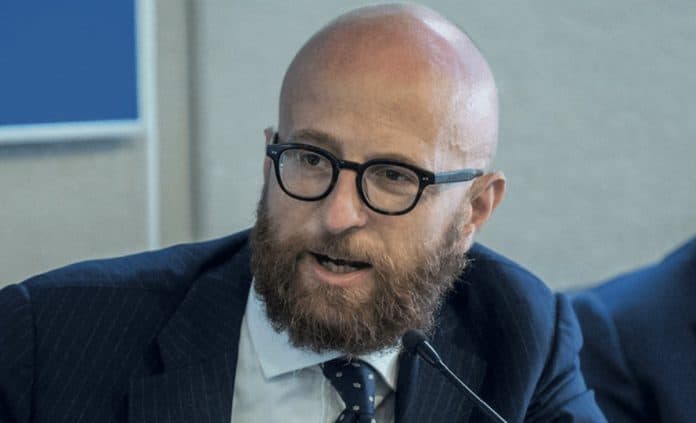by Annalisa Cerbone |
Paolo Manfredi, head of digital strategy at Confartigianato ImpresePaolo Manfredi, head of digital strategies at Confartigian Imprese, points out that, for a social and economic recovery after the pandemic, there is an even greater need to focus on skills. We spoke to him about scenarios and strategies for recovery .
<<La selezione darwiniana delle imprese passerà anche per quelle che saranno state in grado non solo di sopravvivere, ma di rispondere ai bisogni del nuovo mondo>>.
Paolo Manfredi
The world after the pandemic will be very different from what we have known so far. Realistically, what can we expect?
Unfortunately, we don't know, not least because a lot will depend on how long the restrictions on travel and the operation of the economy last. I am an optimist by nature, but the outlook is far from reassuring, at least in the short to medium term. Today we do not know how many companies will have the strength, resources and desire to reopen, and employment and economic scenarios will depend on this. Certainly, public resources can partly alleviate the problem, if they are distributed critically, quickly, to those who need them most and can maximise their value in terms of employment levels and economic return. Unfortunately, we are likely to lose part of our production base in the near future. Another unprecedented issue for our generation and those that follow is the increasing role that the state will play in the economy, as a guarantor of loans today, but also as a regulator and debt collector tomorrow. Today we desperately need resources that only the public can mobilise, and we must be vigilant lest we regret it tomorrow.
In the midst of the lockdown, companies have had to adapt to changing needs by experimenting with flexibility and Smart Working with a massive use of technology. What was the impact? Do you see any positive measures to be taken in the immediate future?
It was finally realised that technology can be easy to use and become familiar even beyond one's skills. By understanding this, fears that technology would take away work and freedom or the indifference of those who said 'it's not for me' have been partly overcome. Some things will come back, because for example going to school or going to the office at least some of the time has a value in itself, which is not completely virtualisable. On the other hand, some technologies - I'm thinking of e-commerce, including proximity - will be with us for a long time to come and will become everyday, as the mobile phone has become. We should start from this step forward in order to work on the next steps, greater widespread familiarity with technology, more skills, greater adoption of even more refined solutions.
Everything is set to change: social relations, use of technology, organisation of businesses and work, governance of territories. What is your plan?
I believe that we must work with conviction and effectiveness on the issue of skills, the only guarantee of employability for workers and competitiveness for businesses. We need to do more and better to bring businesses, especially micro and small ones, which make up more than 95% of Italian companies, and the regions closer to the skills for innovation, in order to carry our entire heritage of know-how, beauty and culture into the future. I am putting business and territory together because in our production culture they have always been together, held together by the glue of passion and work. This capital must be innovated and not dispersed. The risk today is greater than ever; this is why we must act immediately and decisively.
In an article he wrote that: "in order to generate the society of the future, in which no one is saved alone, responsibility and trust will be fundamental". How will this be translated?
As I said, the state will play a huge role in the future in the economy, in work and in our lives. I, who am not an ultra-liberal, was formed on the idea that the state should be the regulator of social and economic life, withdrawing from any active role, but what is happening now is radically changing the cards on the table, as even authoritative liberal commentators recognise. Today, the state, which has to manage this reconstruction, is not in the best condition to do so, nor is politics, which necessarily in a democracy has to manage public decisions and answer to public opinion. The current democratic elites are the result of a progressive marginalisation of politics and the state, as witnessed by growing electoral disaffection. We could say that, probably, if we had known what was going to happen we would have voted more and perhaps differently, but we cannot, it is too late. This is why it is essential to strengthen the control mechanisms of democracies, the pact between elected representatives and voters that underlies democratic delegation: the political class must be increasingly responsible, because the welfare of a large number of citizens depends on its choices, and voters must trust the elected representatives, while ensuring that the pact is respected.
About Paolo Manfredi
Milanese, one son, Inter Milaner, aspiring cyclist and sommelier, Paolo Manfredi is head of digital strategies at Confartigianato Imprese, a competence centre that analyses the impact of the revolution on micro and small businesses and builds inclusive innovation paths. He writes about innovation, politics and restaurants and collaborates with Nova 24 of Il Sole 24 Ore. In 2016 he published with Marsilio "L'economia del su misura. Artigiani, innovazione, digitale" and in 2019 with Egea "Provincia non periferia. Innovating Italian diversities".



















